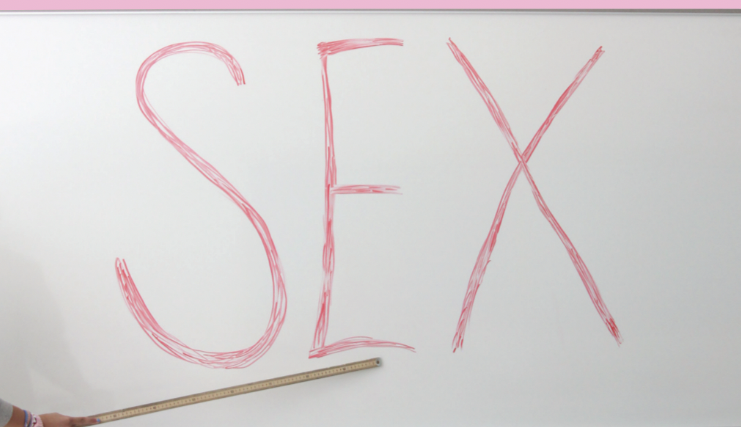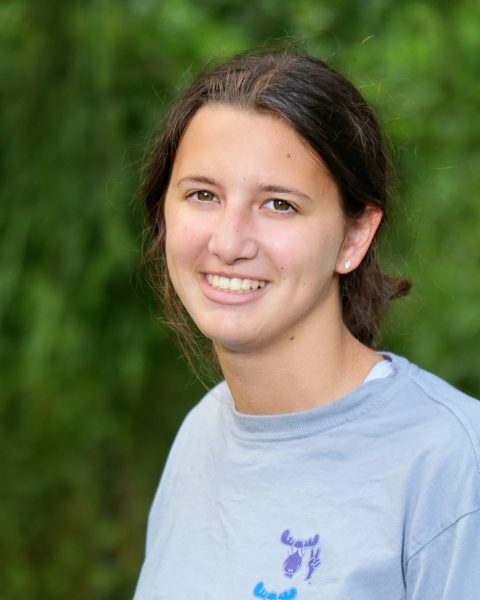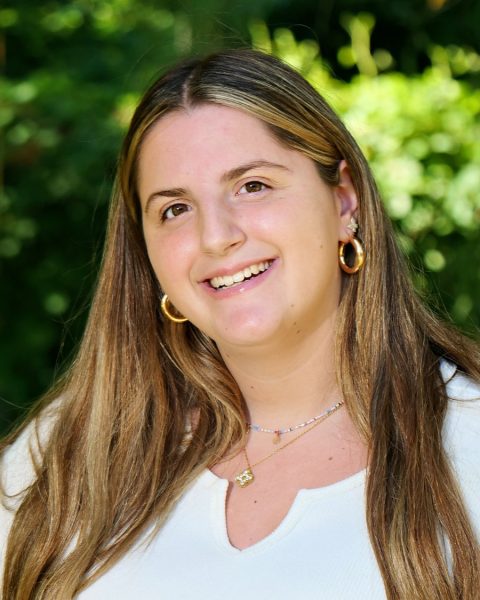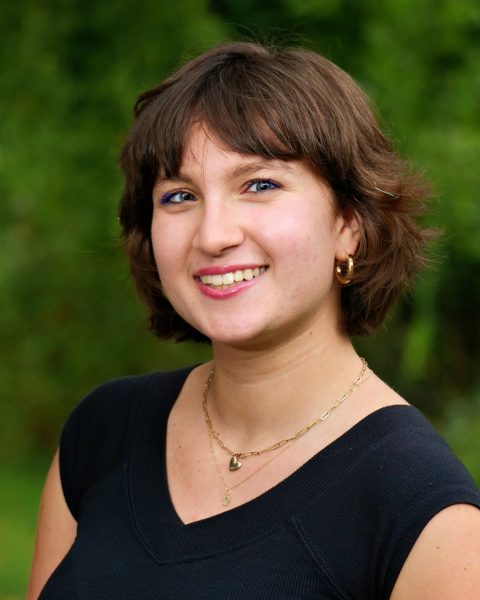Since the 20th century, sleepaway camp has been a staple in the American Jewish community. Many Jewish teenagers spend summers at camps all across the U.S. These camps have become an integral part of many individuals’ Jewish identities, but their history is a little more complicated.
By the end of World War II, many American Jews returned home from military service and received the benefits veterans were offered, according to My Jewish Learning. These benefits catapulted them into the middle class and the suburbs. As a result, many Jews were concerned that Jewish traditions would be lost and thought Jewish summer camps would preserve them.
Today, there are over 300 Jewish sleepaway camps in North America, according to the Foundation for Jewish Camp (FJC). Each camp offers a unique Jewish experience for campers by putting an emphasis on different aspects of the religion.
According to a Pew research study, 40% of American adults raised Jewish attended a Jewish sleepaway camp. Per the FJC’s 2022 census, the number of Jewish sleepaway camp participants continued to skyrocket until the COVID-19 pandemic. Recently, however, numbers are beginning to reach the same levels as five years ago. For some, camp is a life highlight, while for others, it is less than a perfect experience.
Popular camps
At CESJDS, attending a Jewish sleepaway camp is practically a standard among students as, according to a recent survey done by the Lion’s Tale, 88.3% of JDS students have attended Jewish sleepaway camp. But despite so many locations to choose from, there are a few camps that are more popular within the community.
The first of these is Camp Ramah, which has both day and sleepaway camp options. With ten overnight camps around the globe, Ramah considers itself “the camping arm of Conservative Judaism” and operates under the Jewish Theological Seminary’s educational and religious supervision. Many JDS students attend Ramah New England, in Palmer, Massachussuets, for years on end, and some attend the camp’s other locations as well.
Located in Waynesboro, Pennsylvania, Capital Camps is another popular destination for JDS students. Similar to JDS, Capital Camps defines itself as a pluralistic Jewish experience, meaning it offers campers the ability to explore Judaism in many ways.
A third popular camp for JDS community members is Camp Yavneh, located in New Hampshire. Yavneh defines itself as a K’lal Yisrael camp, a place where Jews are encouraged to engage in traditions and practices.
Although these three camps are the most popular at JDS, students attend and work at many other camps across the country.
Promoting Jewish culture
Jewish summer camps offer many benefits to their campers, some of which continue to impact them in Jewish communities after they finish camp. Regardless of the denomination of the camp, the opportunity to explore Jewish pluralism is often open to campers.
According to its Chief Executive Officer Rabbi Ed Gelb, Camp Ramah New England is 85% affiliated with Conservative Judaism based on internal polling, and even within that population, a scope of Jewish practices coexists. Jewish camps that don’t affiliate with any denomination of Judaism, such as Camp Yavneh and Young Judea Camp Tel Yehudah, commit themselves to pluralism.
“Even going to a pluralistic school, I feel like I only fully understood pluralism when I went to camp,” junior Azaria Hileman-Shashoua and Camp Ramah New England alumnus said. “I believe that people should have their own ways of expressing their religion, and that is influenced in large part by my experiences at camp, by meeting other people and by seeing what connected them to Judaism.”
Jewish summer camp also benefits other facets of campers’ Jewish education, whether it be Jewish ritual, values and ethics, Torah study, Jewish history, culture or even the Hebrew language.
According to a study by the FJC, kids who attended Jewish summer camp are 55% more likely to feel emotionally attached to Israel, 45% more likely to attend synagogue monthly or more and 37% more likely to light Shabbat candles weekly as adults.
Lasting benefits
The experiences gained at Jewish summer camp arm campers with leadership skills that they can use beyond their teenage years. For Camp Young Judaea and Tel Yehudah alumna Jen Blumenthal, who is also a parent to Camp Young Judaea and Tel Yehudah alumnus Jonah Blumenthal, Jewish summer camp is especially beneficial for kids who do not attend Jewish day schools.
“[Jonah], like me, was in a public high school,” Blumenthal said. “So I think camp was really valuable to supplement the pieces of informal Jewish education [that he didn’t have], and I think socially, he was able to be with other Jewish kids.”
Additionally, summer camps allow campers to grow their independence while being away from their parents. By being independent, campers can gain other life skills. A study by the Journal of Youth Development states that 60% of sleepaway camp alumni reported that camp helped them to “a great extent” to “develop independence and self-reliance, teamwork skills, self-efficacy, confidence, leadership, self regulation and communication skills.”
“You’re living by yourself with a group of kids your age, and even younger kids, so you have to learn to be comfortable in that setting, and not only relying on your counselors, but learning how to be responsible for yourself,” Camp Perlman camper and sophomore Julia Yoskowitz said.
Another benefit of Jewish summer camps is friendship. The camp environment can inspire friendships and improve campers’ social skills, according to the American Camp Association. One of the reasons for this is that camp separates kids from their screens, which improves campers’ mental and physical health, according to the Mayo Clinic Health System.
Other reasons include living with kids of the same age, freedom from the regular social structures of school and home life and freedom from parents.
Jewish summer camps are intended to make their campers feel as though they belong, and support them as they grow up religiously, emotionally and socially.
“You can discover who you are and [want to] be,” Gelb said. “Camps are very supportive places where people can belong, no matter who they are.”
Social culture
While Jewish sleepaway camps offer a lot of benefits to those who choose to attend, there are also negative aspects. Friend group exclusivity is a concern.
“Clique culture is a big issue at sleepaway camps,” junior Dalia Epstein, who has attended Camp Judea and Camp Tel Yehudah, said. “I think that people find the friends they like and stick with them the whole camp and they’re not really open to talking to other people.”
These cliques are often formed in the early years of camp, causing integration problems for new campers.
“I definitely think camp can be isolating if you’re a first year person and everyone else already has friends,” junior and Capital Camps camper Adam Bachrach said.
The clique culture issue is one that many people are comfortable with if they have friends, however it doesn’t promote the value of Kehillah that many Jewish sleepaway camps wish to.
This is likely not something camp administrations can solve. Although they can attempt to prevent cliques, efforts will likely fail.
“I don’t think the camp administration can do anything to solve the problems,” Epstein said. “I think it stems more from the people.”
Hookup culture, or the culture of romantic relationships at sleepaway camps, is another concern at sleepaway camps. In 2012, the National Library of Medicine (NLM) found that hookup culture was “becoming progressively more engrained in popular culture,” and would continue to follow this upward trajectory.
Due to the freedom that campers are afforded at camp, the concern for hookup culture is greater than it is in other social scenes, like in schools or youth groups.
Just like clique culture, camp administrations are met with the challenge of trying to stop hookup culture. But more so, they must change this norm so that it fulfills the Jewish values of the camp.
“You have to be really direct about what the boundaries are, what’s acceptable, as far as what you can do … about how you treat people, [and] what consent is,” Gelb said. “Then you have to have proper supervision around that.”
Some campers also consider hookup culture a challenge as it disrupts the camp environment and doesn’t allow them to enjoy camp to its fullest. Slate ran an excerpt of Sandra Fox’s “The Jews of Summer: Summer Camp and Jewish Culture in Postwar America”—which explores the history of hookup culture at Jewish summer camps—and found that it has been disrupting the camp environment from the beginning.
Hookup culture puts pressure on campers, and according to a Camp Hemshekh alumna, it has since the 1960s, so much so that it can take away from the benefits that campers might experience.
“I mean, to some extent, [hookup culture] was kind of taboo to speak about. There was some tacit approval from the staff,” Hileman-Shashoua said.
Hazing
Hazing has become another large issue at sleepaway camp. This past summer, Camp Yavneh made the decision to kick out the entire oldest age group of boys from their camp due to hazing.
Mark* is a JDS student who had been attending Camp Yavneh for around eight years, and was kicked out this summer.
“I think the main reason they kicked us out is that they found out about one of our silent football punishments that was pretty extreme,” Mark said. “I think they made the decision based on that.”
Silent football is a popular game played by teenagers at many sleepaway camps and youth groups. The specific rules of the game vary from place to place, but the main idea is that before the game begins, all the players agree on a certain punishment, and in the end the losing player must complete that punishment.
These punishments are where the hazing comes in. Although they can be lighthearted, they can also become inappropriate and dangerous. They can range from being forced to clean the bunks bathroom to having to jump off the bunks roof, although neither of these specific punishments were used at Camp Yavneh.
“The game is definitely not a civilized game. It’s a teenage-boy game and it’s supposed to make you laugh,” Mark said.
Although Camp Yavneh chose not to be interviewed for this article, they did send a statement:
“Last summer, campers in one bunk violated our code of conduct, and appropriate steps were taken. The matter was reviewed thoroughly and, as we do each year, we have made some programmatic changes consistent with the camp’s guiding ethos of derech eretz, or common decency. ”
Playing this game, although fun for many, can turn into hazing behavior very quickly. Since it is played at so many different camps, it is difficult to know if the game itself is hazing or if it depends on who is playing.
“I think silent football at camp has been a very negative experience for me,” Jackson*, a Capital Camps camper said. “There is a lot of pressure to play the game but the punishments can be really embarrassing and not something you want to do, you know? But I always feel like if I don’t play people are going to look at me differently.”
Hazing at summer camps is not a unique experience. Periodicals like Slate and Vox have written pieces specifically about sleepaway camp hazing, and how it is a legitimate concern when sending children to camp.
Financial setbacks
The price of a sleepaway camp can also be an important factor to consider when deciding if camp is worthwhile and feasible.
According to the FJC’s 2022 census, the average cost of Jewish overnight camp in 2022 was $1440 for one week. These costs can be even higher for some camps, including the most popular ones in the JDS community. At Capital Camps, the cost for the full summer (seven weeks), is $13,600, averaging out at $1982 per week. Similarly, the cost of Camp Ramah New England for a full summer (seven and a half weeks) is $11,910, averaging out at $1588 per week. For some campers, this pricing is not justifiable. Former Camp Yavneh Yoetzet Halacha and mother of junior Josie Silverbeg, Sarah Gershman understands this.
“It’s expensive and I don’t think it is necessary,” Gershman said. “I think you can have a really nice summer without going to sleepaway camp but if you can do it and you like it, it is a big gift.”
On the other hand, many people can’t imagine their summer without sleep away camp, and believe it is worth the investment.
“I think camp is pretty expensive but if you can afford it and your child likes the camp then I think it’s a great way to spend your summer and money and is worth it,” Epstein said.
Final thoughts
Regardless of whether a camper’s experiences at summer camp are positive or negative, the impact that it has on the greater Jewish community remains. This impact sets Jewish summer camps apart from American summer camps, making a distinction between the two types of summer camp.
“Camps are very supportive places where people can belong, no matter who they are. You can discover who you are and [want to] be,” Gelb said. “Jewish summer camps are encouraging atmospheres in the Jewish realm. There’s a lot of reinforcement of the joys of Judaism.”
Despite its impact, Jewish summer camps cannot meet the needs of every camper, so there are many factors to take into account when deciding how to spend the summer. Nonetheless, Jewish summer camp has functioned as a part of the mosaic of Jewish identity since the 20th century, and its greater impact on the Jewish community will never fade.









